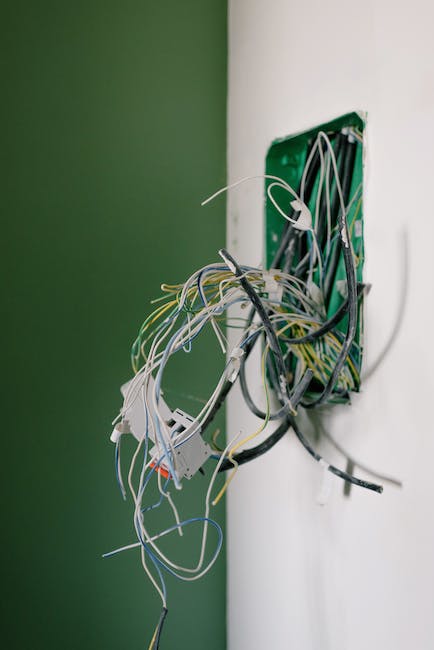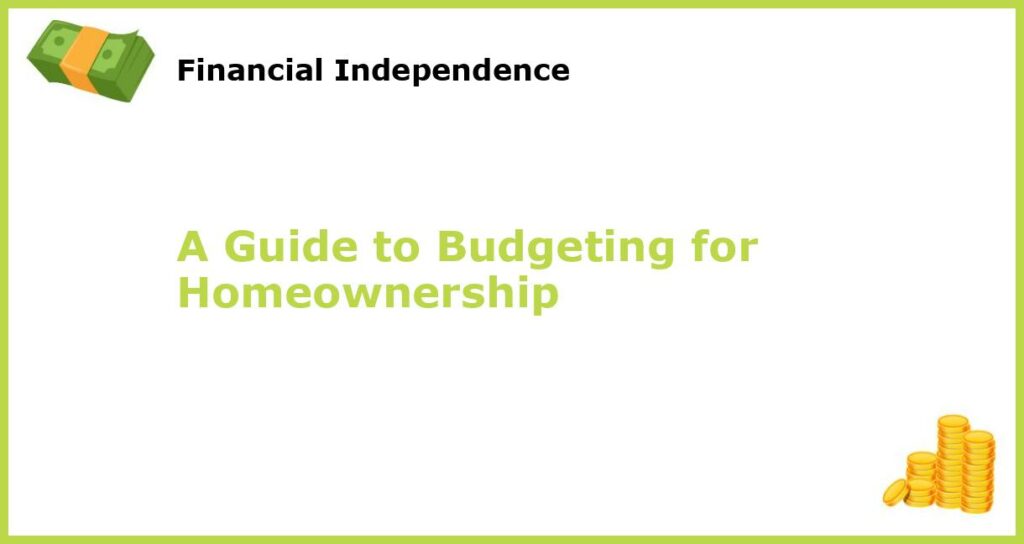So, you’ve decided to take the leap into homeownership! Congratulations, this is a significant step towards achieving the dream of owning your own home. But, before you start house-hunting, there are some critical financial factors that you must consider. By creating a well-thought-out budget, you can ensure that your homeownership journey is a successful and financially responsible one. Here is a comprehensive guide to budgeting for homeownership.
1. Understanding Your Finances

Before embarking on the journey to homeownership, it is essential to have a clear understanding of your finances. This includes your income, expenses, debt, and credit score. Your monthly income and expenses should be tracked to the most minor detail. Include food, transportation, utilities, entertainment, subscriptions, debts, and other monthly expenses. You should determine how much you can afford to spend on a home by considering your monthly payments, including principal, interest, taxes, and insurance. Additionally, it’s always vital to prepare for unexpected expenses. Create a separate emergency fund to cover home repairs and other unexpected expenses. The emergency fund should be the equivalent of three to six months of your monthly debt-free expenses.
2. Planning for A Down Payment
When budgeting for homeownership, one of the most significant expenses is the down payment. While it is recommended that you aim to save at least 20% of the home’s purchase price to obtain a favorable mortgage, there are programs available that allow for a lower down payment if you meet certain eligibility requirements. Therefore, before starting to save up for a down payment, research the financing options available in your area. Pre-approval for a mortgage can help you figure out the down payment requirements and the interest rate you will qualify for. Try researching first-time homebuyer programs in your area.
3. Accounting for Closing Costs

In addition to the down payment, you will also need to account for closing costs. Closing costs typically range from 2% to 5% of the purchase price and could include fees for services such as a home inspection, appraisal, title search, and legal fees. Therefore, when preparing your budget, be sure to factor in these costs and be prepared to cover them.
4. Considering Property Taxes

Property taxes are another expense to consider when budgeting for homeownership. Property taxes vary based on the home’s location and value and are usually paid annually or semi-annually. Ensure you research property tax rates in your preferred area and account for these costs in your budget. Also, take note that property taxes increase due to revaluation, new construction, or government decisions. The property tax rate fluctuates, so remember always to keep track of it.
5. Recognizing the Importance of Home Insurance

Home insurance is another vital expense to consider when budgeting for homeownership. Homeowner’s insurance protects you from financial loss due to natural disasters, theft, and other unexpected events. It is essential to check the coverage of the insurance policy offered and its cost. Your insurance costs will depend on factors such as the home’s location, age, and condition. It is essential to analyze the policy for additional coverage options or deductible. Make sure you get quotes from different insurance companies to choose the most competitive rates.
6. Calculating Utility Costs

Utility costs include electricity, gas, water, and other necessities that come with owning a home. These expenses can vary based on the size of your home and your usage levels. Other factors that may influence utility costs are insulation quality, roof and window quality, weather, and energy-saving habits. Thus, take note of the energy-saving appliances you have in your home, reduce your energy consumption to save on costs, and switch suppliers to save money.
7. Saving for Home Maintenance and Repairs

When you own a home, you are responsible for repairs and maintenance, from fixing a leaky faucet to replacing a furnace. Always have a separate fund dedicated to covering such costs. A good rule of thumb is to set aside 1% to 3% of your home’s value annually for maintenance and repairs. Keep track of the regular maintenance you perform to avoid major emergencies. It’s essential to stay on top of your home’s overall health and be proactive about maintenance to avoid surprise, huge costs.
8. Planning for Homeowner Association Fees

If you are purchasing a home in a community with a homeowner association (HOA), you will be required to pay HOA fees. These fees may be monthly or yearly and go towards maintaining the community’s amenities, such as a pool, gym, or landscaping. Ensure you research the HOA fees in advance and factor them into your budget. One crucial aspect to consider before purchasing a home in such a community is understanding the HOA’s by-laws and rules. Check if there are restrictions on certain items, such as dish antennas or pets, to avoid future problems.
9. Staying Committed to Your Budget
Creating a budget for homeownership is not a one-time event. Once you have a plan in place, it is essential to commit to it to maintain financial stability. This may mean making sacrifices and cutting back on unnecessary expenses to save for homeownership. Keep track of the bills you pay monthly and make a routine financial check-in to ensure you are sticking to the budget you have set for yourself.
10. Seeking Professional Advice
If you are unsure about the budgeting process, seek the advice of a financial advisor or mortgage lender. They can help you understand your options and guide you on your journey to homeownership successfully. Speaking with professionals about your unique financial situation can help you make the best decisions and ensure you feel confident and secure before committing to a monthly mortgage payment.







